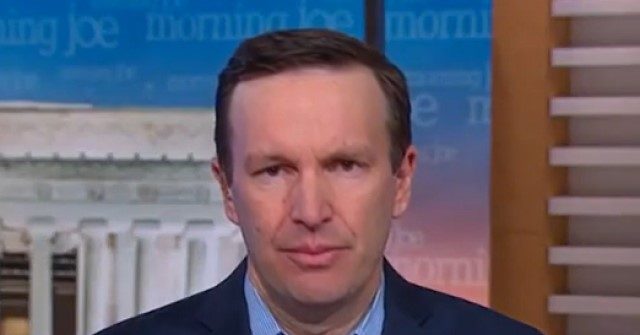On MSNBC’s “Katy Tur Reports,” Senator Chris Murphy of Connecticut discussed the implications of President-Elect Donald Trump’s Cabinet selections, characterized by market fundamentalists. He highlighted the potential for Democrats to advocate for a balanced economic approach—termed “common good capitalism”—that seeks to temper the excesses of unregulated markets. Murphy expressed concern over the expected policies that could prioritize tax cuts for the wealthy and deregulation over the interests of the working class. His stance underscored a critical moment for the Democratic Party to redefine its values and offer a compelling alternative to the incoming administration’s approach.
Murphy critiqued the prevailing binary choice between unfettered capitalism and socialism, suggesting that a more nuanced perspective is needed. He proposed a middle ground, where capitalism can coexist with strong protections and values for workers, rather than solely for shareholders. This “common good capitalism” would involve legislative frameworks ensuring fair wages, economic opportunity for small businesses, and equitable healthcare access, which are increasingly viewed as essential components of a thriving society. By emphasizing this position, Murphy argues Democrats can engage voters who cherish the benefits of capitalism but seek reforms that prioritize the wellbeing of the labor force.
Highlighting the struggles of working-class individuals, Murphy focused on the reality that many are forced to work excessive hours just to make ends meet. He emphasized that a reformed economic system should alleviate these burdens, allowing hard-working families to achieve a better quality of life without sacrificing their well-being. This aligns with the broader narrative that many Americans desire a system where effort and determination are rewarded fairly, rather than a landscape dominated by the financial elite and corporations.
A key element of Murphy’s argument is the necessity for Democrats to convey their message effectively to the public. They must demonstrate that it is possible to maintain the principles of a free market while ensuring that those principles do not come at the expense of social equity and worker rights. He believes in a framework where governmental intervention is utilized to correct market failures and prioritize human dignity, thereby reinvesting in communities and the workforce.
Murphy also sees Trump’s Cabinet composition as an opportunity for Democrats to mobilize and rally their base around a vision that champions economic reform. He argues that as the new administration introduces policies skewed towards the wealthy, it can alienate a significant segment of the population who are invested in a more balanced economic approach. By positioning themselves as champions of fair economic practices, Democrats can gain traction with constituents dissatisfied with incoming policies that seem to favor the affluent.
Ultimately, Murphy’s vision for the Democratic agenda is one that seeks to carve out a distinct space in the political discourse, countering the trends of unfettered capitalism. He calls for a movement that resonates with a diverse voter base, advocating for policies that ensure the free market serves everyone—not just the privileged few. Through effective communication of this message, Democrats have the opportunity to reshape the narrative around capitalism and advocate for an economy where mutual benefit and equity are set at the forefront of policy discussions.

